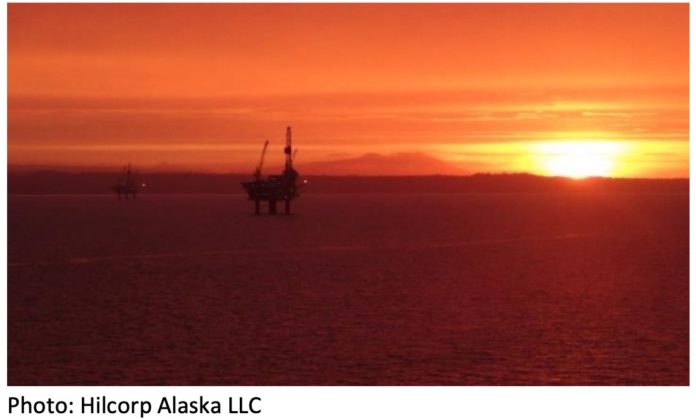Could a lower royalty structure attract more private investment back to Cook Inlet for gas production?
Today, Alaska Gov. Mike Dunleavy proposed to find that out, with the announcement of legislation that would make investment more attractive to a gas field that is proven, and has been productive since just after Statehood.
“Royalty is the main economic lever DNR can adjust in the Cook Inlet Basin to incentivize new activity and increase energy security. Royalty drives economics, and economics drive projects,” explained Department of Natural Resources Commissioner John Boyle.
Cook Inlet gas royalties averaged just 3.6% of state royalty income from FY13-22. In FY22, that amounted to $45.2 million, the governor’s office said. Royalties from this existing production will not be reduced by the proposal, and it will only apply to new pools and fields that are brought online and are not currently generating royalties for the State.
“Given the looming energy supply gap for Railbelt utilities and the level of production under the current regulatory environment, the Governor’s proposal is squarely aligned with the Alaska Constitution’s mandate to develop state resources for maximum use consistent with the public interest,” Commissioner of Revenue Adam Crum said.
The bill will be introduced at the beginning of the 2024 legislative session. If passed, new drilling and development activities would be incentivized immediately and new production from onshore could be realized shortly thereafter. Offshore developments may take several years to come online with the new terms. With the potential to unlock hundreds of additional billions of cubic feet of gas, these new supplies alone could meet our Railbelt’s annual demand of approximately 70 billion cubic feet for several years.
These volumes will supplement the significant volumes of gas that are already under contract for the next decade.
The Dunleavy Administration will also be rolling out other energy related initiatives across the state that will lower the cost and increase the stability of energy for Alaskans for both the short term and for years to come, his office said.
